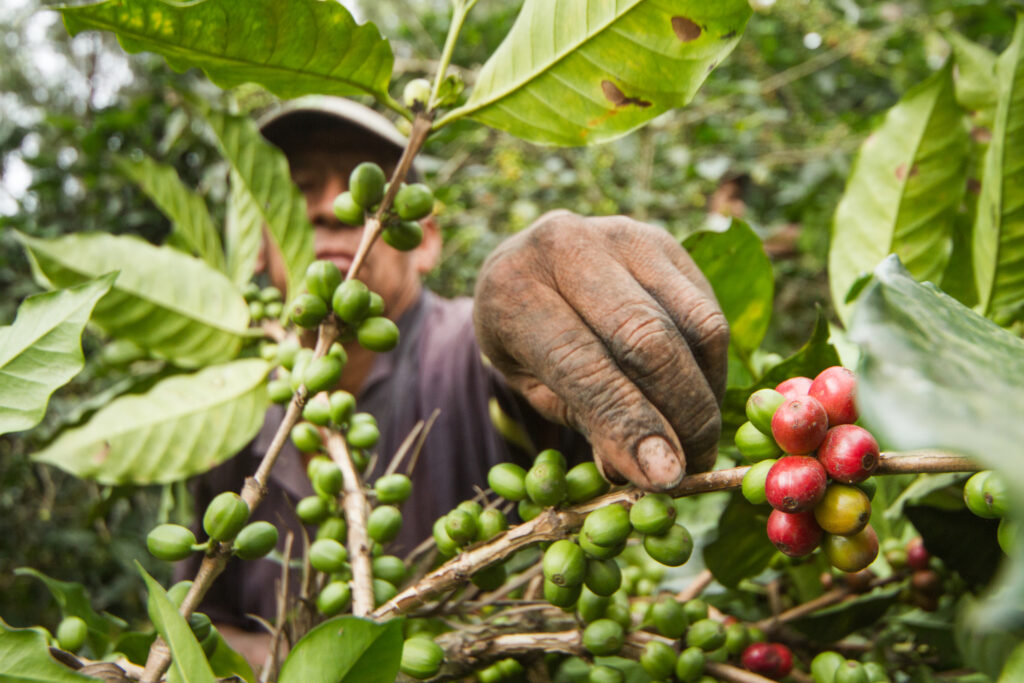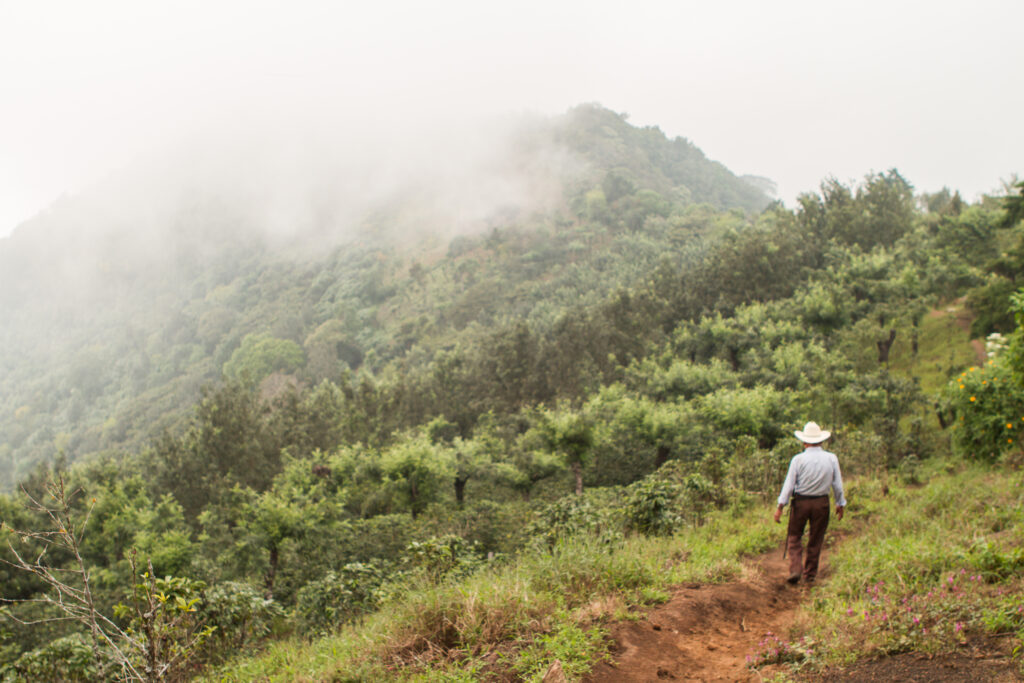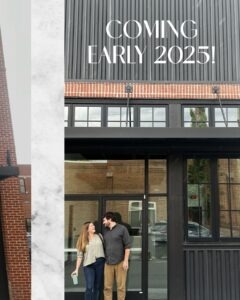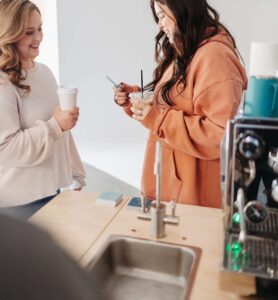Asulon Collective featuring Ryan Chipman with Yepocapa Coffee.
Hi lovely people! I am so thrilled to feature the first “Asulon story” of many more to come. In the last blog I wrote about how this adventure is organically unfolding and part of that unfolding is exactly how I discovered Yepocapa Coffee.
One evening back in February, I was researching online and came across their website. After reading their story, connecting deeply to it, and being passionately inspired I decided to reach out because, why not try to connect? Within 24 hours, Ryan Chipman (one of the co-founders) reached out and two days later we had a video call to swap stories!
Ryan shared with such transparency and passion about their journey. Yepocapa Coffee was founded in 2015 by sourcing coffee from small-plot coffee farmers in Yepocapa, Guatemala. They connect and create relationships between the coffee farmers and coffee consumers. Throughout my own journey Ryan has been so gracious in remaining connected and continuing to be a helpful resource in the coffee industry.
We will be doing a special 3 part interview series to fully share Yepocapa’s story, learn more about coffee farming in Guatemala, and hear from Ryan on how Yepocapa Coffee is living out “Asulon.” Go ahead and grab yourself a cup of coffee then continue reading below:
What’s the daily life of Ryan Chipman look like these days?
“That’s a fun one! When I’m down in Guatemala, it looks different each day. Sometimes we’re roaming lands meeting farmers and having intentional meetings till the evening. Other days it looks like afternoon naps and spending quality time with our “adopted” family here in Yepocapa. When I’m stateside the other 9 months of the year, I actually work two jobs. I build Boat Docks in Wichita, KS and in the evenings, I work with Yepocapa Coffee mainly shooting emails and catching up on calls with roasters.”
What’s your favorite way to drink coffee?
“This may sound coffee-snobbish, but I actually don’t own a coffee maker so the only way I make coffee is through pour-overs. I’ve used an Aeropress and Kalita’s before but my favorite brewing method is a classic V60. I love the intentionality that goes into a pour-over. They are time consuming for sure, but it’s a small way I can put more focus into brewing a cup of coffee aimed to honor the work that was placed into it before me.”
Can you share your perspective on what it means to be a place of refuge for another person?
“When I think of a place of refuge, I think of a place where there’s opportunity, partnership, sense of home, purpose, belonging, etc. To give some backstory, farmers often feel undervalued, overworked, and even enslaved to a career that often has little to no future positive outlooks. In some ways, they’re refugees to a broken system that’s unable to place their interests first in how coffee is bought and sold.

By incentivizing quality and changing the conversations that take place around buying and selling coffee, farmers are given an opportunity to succeed and thus the capacity to enact their own change they hope for. Incentivizing quality is something that not only honors the farmers, but it creates a better sense of hope knowing that there’s a chance to see coffee farming better than it was generations before. The cool part is that the byproduct of these better relationships really is better coffee too!
To circle back, it’s been neat to seek to benefit others first although it’s never been a one-way street; the farmers do it for us too. The result of this partnership has created a place of refuge for the farmers and greater community of Yepocapa.”
Ryan Chipman – co-founder of Yepocapa Coffee
Yepocapa Coffee was initially started to advocate for a local primary school serving their community. Then through creating relationships with local coffee farmers, you all began partnering with them as well. Now you are not only reinvesting into the local school, but also the coffee-farming cooperative too. Two great examples of refuge! Can you share with us how families have been impacted and why generating generational investment has been such a priority?
“Wow, good question! So many different ways to go at this, but there’s a neat connection between our work with coffee and our desire to support Colegio Berea, the school in Yepocapa. Yepocapa is a rural town with its roots in farming beans, corn, coffee, etc. Many of the farmers here are the 4th or 5th generation coffee farmers, which is something they’re proud of and even reminisce about it.
When the coffee crisis happened in 2001, over half of the farmers in Yepocapa abandoned their lands and some even left Yepocapa entirely seeking better work either in Guatemala City or emigrating elsewhere. This not only affected that generation, but it cast a negative outlook on that next generation of coffee farmers; the youth.
At the moment, the average age of coffee farmers in Yepocapa is somewhere in the 60’s. Out of the 140ish farmers I’ve interacted with, I personally know of only 3 farmers below the age of 30. Since coffee farming has become synonymous with poverty and uneducated people, the younger generation has been more focused on getting their education and leaving Yepocapa in search of better jobs/opportunities. That’s not a bad objective of course, but it leaves communities like Yepocapa without the next generation to carry the multi-generational investment of coffee farming.

The truth is that coffee farming can be prosperous and despite what much of the younger generation thinks, it’s actually going to take educated individuals and collaborative out-of-the-box thinking youth to solve some massive issues that still exist in the coffee industry. Coffee farming needs accountants, agronomists, structural engineers, biologists, chemists, translators, and much more. That’s where the role of education comes in. Colegio Berea has this unique capacity to empower youth to see the various opportunities that exist locally in Yepocapa and to challenge the previously held assumptions. Colegio Berea inspires youth to see their own potential and capacity to enact their own change rather than looking elsewhere.
So obviously there’s an area of quantifiable financial impact behind how we buy coffee, but we’re passionate about how what we do now can impact or make a brighter and more hopeful future.”
What an incredible story! Yepocapa Coffee is certainly an example of refuge in the coffee industry. Ryan shows us how relationships and coffee can create lasting connection as well as opportunities for generational-impacting partnerships. Thank you for reading part one, and stay tuned for next week where we hear about Ryan’s own experience of refuge and learn more about Yepocapa Coffee’s practices.
Want to learn more or connect with Yepocapa Coffee? Check them out here: http://www.yepocapacoffee.com or on social media:
Instagram and Facebook @yepocapacoffee
Twitter @Yepocapa_Coffee
Edited by: Alida Cassinari
Permission to use photos from Ryan Chipman with Yepocapa Coffee.
Photo credit: @devonbbarker







